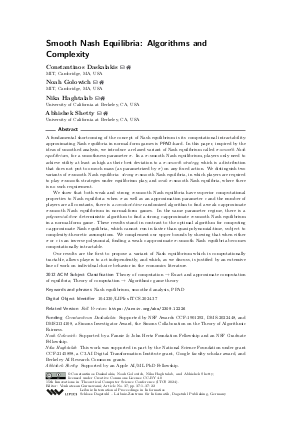LIPIcs.ITCS.2024.37.pdf
- Filesize: 0.86 MB
- 22 pages

 Creative Commons Attribution 4.0 International license
Creative Commons Attribution 4.0 International license



























Feedback for Dagstuhl Publishing